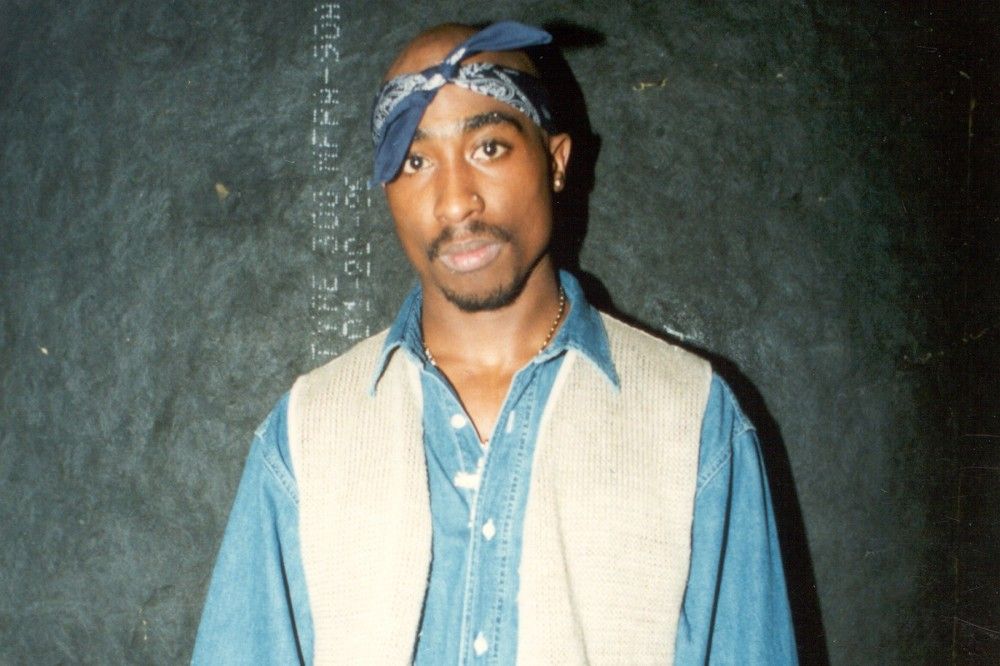
Tupac’s Sister Asks Court for Estate Audit, Blasts Trustee’s ‘Hide and Control Strategy’
Shortly after Tupac Shakur’s sister, Sekyiwa Shakur, alleged in a blockbuster lawsuit that trustee Tom Whalley had “embezzled millions” from her late mother’s estate, the music industry veteran slammed the claim as “offensive” and “legally baseless.”
Whalley, who signed Tupac to Interscope and worked closely with the iconic rapper and his mom Afeni Shakur-Davis during their lifetimes, assured the court in a March filing that while it was true he had not yet produced a formal trust accounting to Sekyiwa following her mom’s death in 2016, an outside firm had already been hired to prepare one.
The executive who helped produce Tupac’s 2Pacalypse Now, Thug Life, and Me Against the World also admitted that while “substantial assets” originally belonging to the late rapper — including multiple cars, gold records, clothing and pin ball machines that Afeni inherited as the sole beneficiary of her son’s estate — had “yet to be distributed” to Sekyiwa, the trust granted him “absolute discretion” to withhold and use the items to make money for the estate. Indeed, many of the items ended up in the traveling “Tupac Shakur: Wake Me When I’m Free” exhibit now open at L.A. Live, he said.
“Now that the exhibit is up and running,” Whalley told the court, distribution of the estate’s remaining tangible personal property would start flowing to Sekyiwa. Despite the assurances, a judge still ordered Whalley to produce a full accounting of the trust by June 30.
In a filing on Monday, Sekyiwa and her lawyers said the accounting, filed as ordered, “falls woefully short of compliance with the legal and accounting requirements of the trust.” They said Whalley only provided figures for “very general categories” of assets, listing jewelry valued at $217,700 without any catalog of the items, for example.
“Either (Whalley) lacks the capacity or the will to properly account to petitioners, or else he has something to hide,” Sekyiwa’s lawyers wrote.
Calling the alleged lack of transparency a “hide and control strategy,” Sekyiwa and her lawyers asked the court on Monday to appoint an “independent” CPA to audit the trust and report back with a detailed accounting of all assets. That would include Amaru Entertainment, the record label started by Afeni that controls much of Tupac’s music and intellectual property. Amaru is wholly owned by the trust, but Whalley runs the company as its paid boss.
Sekyiwa and her lawyers say they want to know how much Whalley pays himself through Amaru – and how much he has received to date. While Whalley does not take a fee for acting as estate trustee, he allegedly receives a 20 percent commission at Amaru, Sekyiwa’s filings claim. She and her lawyers question whether such a commission is warranted.
“When Afeni was alive, she got to make the choices. Now the only one getting to make choices is Mr. Whalley. There’s a specific provision in the trust that we cite that says the conflict of interest, which is obvious, is waived so long as the compensation that he receives is basically commercially reasonable. This is a different situation from when Afeni was alive and directing things, setting the goals,” Sekyiwa’s lawyer Donald David tells Rolling Stone. “We aren’t even sure what he’s receiving. We have nothing that makes us comfortable that Mr. Whalley has accurately disclosed the compensation he’s receiving or that it’s proper compensation pursuant to the terms of California law and the trust.”
Meanwhile, sources say that when it comes to “Wake Me When I’m Free,” Whalley doesn’t receive a cut. “It all goes to Amaru,” once source tells Rolling Stone.
In Sekyiwa’s underlying lawsuit, she alleged that Whalley has received $5.5 million over the past five years from Amaru, a figure she considers “well in excess of what would be reasonably necessary to retain a properly qualified third-party to perform such services.”
A representative for Whalley declined to comment Tuesday, pointing Rolling Stone to his filings in the case. In his March paperwork, Whalley said his track record at Amaru speaks for itself.
“Over the last five years, Amaru has increased in value by tens of millions of dollars as a direct result of Tom’s sound judgment and business acumen,” his filings state.
Whalley’s lawyers point to their client’s efforts to “preserve, protect and exploit Tupac’s name, likeness, and intellectual property for the Trust and its beneficiaries,” such as his work monetizing the use of Tupac’s name and likeness in national campaigns, winning back ownership of the “Thug Life” trademark, and regaining copyrights and master recordings, footage, and other material from a bankrupt Death Row Records as well as Universal Music.
Whalley claims the immersive exhibit was a project Afeni started in her lifetime, and he simply made her vision a reality. He also highlights his work halting auctions of Tupac’s memorabilia and “recapturing” the items for Amaru and the trust.
But Sekyiwa’s lawyer says Tupac’s sister has her own vision for their family legacy. “She has repeatedly told me that she wants to show the world who her brother and mother truly were, and what it was they truly were putting forward as values,” Donald David says, adding that his client has not seen the pop-up exhibit.
In the Monday filing, the sister and her lawyers say transparency is long overdue.
“(Whalley) has intentionally refused to properly account to the beneficiaries for nearly six years, and even after being ordered to provide a compliant accounting by this court, he has refused again. Instead, he and his advisors have renewed their commitment to a years-long pattern of detrimental conduct by withholding critical information and refusing to properly account in accordance with the trust, California law and his own fiduciary duties,” the 31-page filing obtained by Rolling Stone says.
A hearing in the trust battle is set for Aug. 10.




